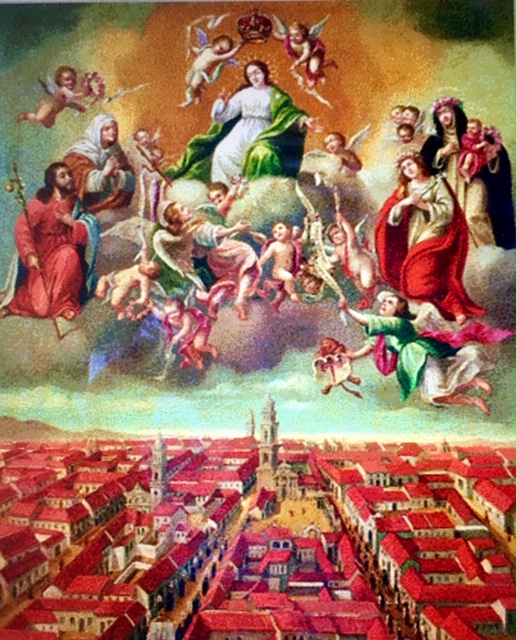The news is filled with the tragic story of Venezuela’s decline from being the most oil-rich country in the world, surpassing Saudi-Arabia’s legendary wealth, to a country with an inflation rate of over 1,370,000 percent, rampant crime, and widespread starvation. And from having excellent schools and 95% adult literacy to a school dropout rate of between 58% and 80% with three-quarters of the schools lacking food, water, and electricity.
The story of Venezuela’s precipitous decline is a cautionary tale for the United States.
When Christopher Columbus saw Venezuela’s beautiful coastline in 1498, he declared the land to be Paradise on Earth. A few decades later, it was colonized and remained so until it achieved independence in 1830. In 1958 it embraced such democratic ideals as freedom of the press and civil rights but tried to combine them with a number of quasi-socialist practices including price controls, increased government regulations, and opposition to private property.
Then in 1999 Hugo Chavez became president and instituted what he called “Socialism for the 21st Century”, which spoke of liberty and social justice but focused on increased government control, the manipulation of the country’s currency, and the takeover of private companies. In 2013, Nicolás Maduro succeeded Chavez and continued his style of governance.
So what happened to Venezuela in the 21st century? What caused the government’s collapse and the people’s descent into abject poverty? Venezuelan scholar Rafael Acevedo explains, “when we [Venezuelans] enjoyed high levels of economic freedom, we allowed the destruction of political and civil rights, and when we finally established a democracy, we allowed the destruction of economic freedom.”
To put it more simply, they allowed capitalism, which works, to be replaced by socialism, which doesn’t. The change occurred gradually, as government gained more and more control over the economy by increasing taxes on wage-earners, establishing restrictive regulations on business owners, and in some cases confiscating private property and taking over its management. Disinterested and often incompetent bureaucrats who opposed free-market competition took the place of interested problem solvers. Over time, problems that arose were not solved, making it first difficult and then impossible for the system to continue functioning, and eventually leading to economic disaster.
The decline of Venezuela is a cautionary tale for all nations, but many politicians in the United States seem to be ignoring it. With few exceptions, Democrat candidates in the 2020 presidential race are running on these programs, among others:
A single-payer system of Medicare (or an expansion of Medicaid); Free education and forgiveness of existing student debt; An end to dependence on fossil-fuels or a carbon tax; Substantial raises to the minimum wage; Open borders and guaranteed rights for immigrants; Significant tax increases on the wealthy.
Make no mistake, these are socialist ideas. Each would seriously strain federal and/or state budgets; each would significantly increase governmental control over individuals and businesses; each would increase the twin burdens of taxation and regulation; and each would lead the U.S. closer to the very same socialist governance that devastated virtually every nation that tried it. Combined, they would unquestionably bring to the United States the disastrous effects that Venezuela is now suffering.
No one with a clear understanding of the history of socialism would advocate it for any country, least of all his or her own. So why are the Democrat presidential candidates virtually united in that advocacy? I believe for a combination of reasons. One is that for decades is has been fashionable in this country to hate everything associated with it including its historically Judeo-Christian philosophy and religious values, all parents (the alleged source of every emotional problem), as well as to its free-market capitalist economic system.
Another reason, one that fuels the fashion of hating traditional culture, is the belief that history is irrelevant to people’s lives. The truly relevant thing, the idea goes, is one’s self-esteem and the effort to maintain it at the highest possible level. That maintenance is a full-time job and it is conducted only in the present moment within each person’s mind. History concerns the past events in other people’s lives, hence it has no meaning for ours. Educators may or may not believe this nonsense, but they have nurtured it by diminishing the place of history in their curriculums. George Santayana famously said, “Those who cannot remember the past are condemned to repeat it.” If he were still alive, he would no doubt add, “And they certainly cannot remember what no one has bothered to teach them.”
A third reason I believe that Democrat candidates for the presidency are virtually unanimous in advocating socialism—a reason that is foundational to the others—is that they have accepted without question the dominant view that truth is subjective rather than objective; that is, that truth is found within each individual rather than searched for and discovered outside the self. Their acceptance is hardly a surprise. After all, it is what has been taught for years in the nation’s schools and universities. No doubt the candidates are in the habit of fashioning their own view of reality, the lessons of history notwithstanding.
Whether this country will avoid the siren song of socialism will depend on whether the American people have the wisdom to reject political candidates who ignore the profound lesson of Venezuela.
Copyright © 2019 by Vincent Ryan Ruggiero. All rights reserved




